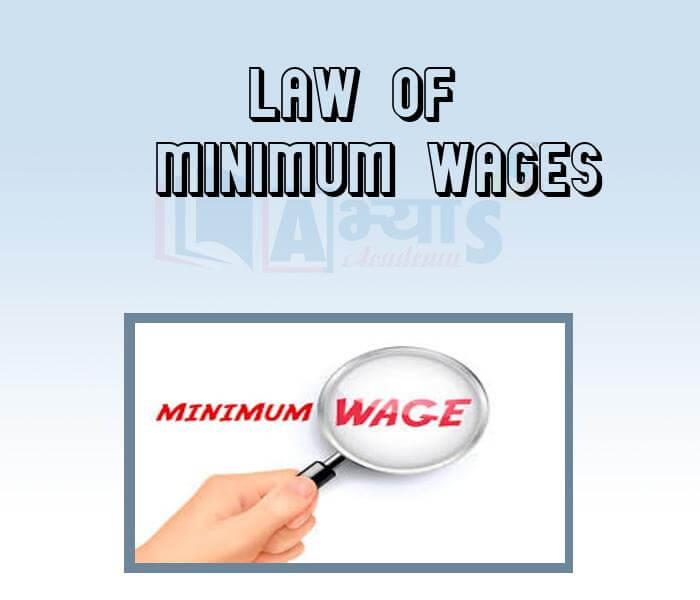Law of Minimum Wages

Law of Minimum Wages
As with the law on minimum wages, which is meant to protect workers, there are also laws that protect the interests of producers and consumers in the market. These laws ensure that the relations between these three parties- the workers, consumer and producer- are governed in a manner that is not exploitative.
Merely making laws in not enough. The government has to ensure that these laws are implemented. This means that the law must be enforced. Enforcement becomes even more important when the law seeks to protect the weak from the strong. For instance, to ensure that every worker gets fair wages, the government has to regularly inspect work sites and punish those who violate the law. When workers are poor or powerless, the fear of losing future earnings or facing reprisals often forces them of accept low wages. Employers know this well and use their power to pay workers less than the fair wage. In such cases, it is crucial that laws are enforced.
Through making, enforcing and upholding these laws, the government can control the activities of individuals or private companies so as to ensure social justice. Many of these laws have their basis in the fundamental rights guaranteed by the Indian constitution. For instance, the Right against Exploitation says that no one can be forced to work for low wages or under bondage. Similarly, the constitution lays down “no child below the age of 14 years shall be employed to work in any factory or mines or engaged in any other hazardous employment
Students / Parents Reviews [10]
It has a great methodology. Students here can get analysis to their test quickly.We can learn easily through PPTs and the testing methods are good. We know that where we have to practice

Barkha Arora
10thIt was a good experience with Abhyas Academy. I even faced problems in starting but slowly and steadily overcomed. Especially reasoning classes helped me a lot.

Cheshta
10thAbout Abhyas metholodology the teachers are very nice and hardworking toward students.The Centre Head Mrs Anu Sethi is also a brilliant teacher.Abhyas has taught me how to overcome problems and has always taken my doubts and suppoeted me.

Shreya Shrivastava
8thAbhyas Methodology is very good. It is based on according to student and each child manages accordingly to its properly. Methodology has improved the abilities of students to shine them in future.

Manish Kumar
10thMy experience with Abhyas academy is very good. I did not think that my every subject coming here will be so strong. The main thing is that the online tests had made me learn here more things.

Hiya Gupta
8thMy experience with Abhyas is very good. I have learnt many things here like vedic maths and reasoning also. Teachers here first take our doubts and then there are assignments to verify our weak points.

Shivam Rana
7thBeing a parent, I saw my daughter improvement in her studies by seeing a good result in all day to day compititive exam TMO, NSO, IEO etc and as well as studies. I have got a fruitful result from my daughter.

Prisha Gupta
8thAbhyas is a complete education Institute. Here extreme care is taken by teacher with the help of regular exam. Extra classes also conducted by the institute, if the student is weak.

Om Umang
10thMy experience was very good with Abhyas academy. I am studying here from 6th class and I am satisfied by its results in my life. I improved a lot here ahead of school syllabus.

Ayan Ghosh
8thIt was good as the experience because as we had come here we had been improved in a such envirnment created here.Extra is taught which is beneficial for future.








